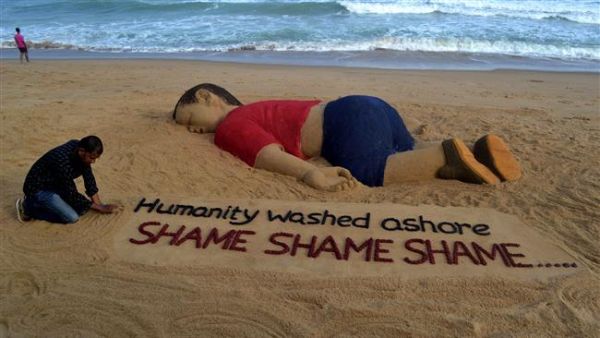A European NGO has released a photograph of a refugee baby found dead in the mediterranean – in the hope, it says, of compelling the European Union to act on the crisis.
The drowned child was pictured in the arms of a German volunteer, and was released on Friday at the end of an especially tragic week in the mediterranean. More than 800 refugees are thought to have died off the Italian coast this week, prompting the world to look from the Turkey-Greece crossing to the route from Libya, used predominantly by migrants from Africa.
Rescuer from humanitarian org Sea-Watch holds a drowned #migrant baby off Libyan cost on 5/27/16 | via @Slate pic.twitter.com/7P2ZQuFBAq
— Ignatian Solidarity (@IGsolidarityNET) 31 May 2016
The image was released by the charity Sea Watch, which rescues migrants trapped when boats capsize around Europe. It was immediately compared to the widely circulated image of Aylan Kurdi, a 3-year-old Kurdish Syrian boy who drowned in the mediterranean in September 2015. A photograph of Aylan’s body, lying on the beach as waves lapped the shore, was presented as powerful catalyst for action on the refugee crisis, and prompted extensive fundraising efforts and political campaigning.
If Sea Watch activists hope their image might change things, however, they may want to look at what followed Aylan’s death. Prayers, moments of silence and protests were held throughout the world after his photo was published, world leaders spoke of being moved by the photos, and the image even had an impact on the Canadian General Election.
But few of those words have translated to action. In the last year, European borders have been further closed, not opened; between Aylan’s death and March this year, 300 more children died at sea. After the last tragic week, 2016 looks to be the deadliest yet for migrants crossing the seas.
Yesterday, Aylan Kurdi’s father said his son and family had “died for nothing”. The family of the child photographed last week have not been identified: it’s possible that they, too, drowned while fleeing their homes.







